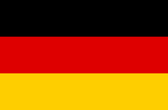
Call 0330 880 3600 Calls may be monitored or recorded. Opening Times.
- TRAVEL INSURANCE
- COVID-19 COVER
- More Options
- Help & Advice
- Existing Customers

Call 0330 880 3600 Calls may be monitored or recorded. Opening Times.

Need help?
UK Customer Services0330 880 3600*
Open Monday to Friday 9:00am to 6pm, Saturday 8:30am to 4pm and closed Sundays.
*Calls are recorded for training and quality purposes.

Official name: Federal Republic of Germany
Capital city: Berlin
Official language: German
Population: Around 84 million
Currency: Euro (EUR)
Time zone: GMT+1 (GMT+2 in summer)
Driving side: Right
Climate: Four distinct seasons, with cold winters, warm summers, and mild spring and autumn
Germany, at the heart of Europe, is a country where tradition and innovation sit side by side. Known for its historic cities, medieval castles, cultural landmarks, and thriving industries, it offers something for every traveller. Berlin is renowned for its history and vibrant arts scene, Munich for Oktoberfest and Bavarian charm, and the Rhine Valley for picturesque villages and vineyards. As Europe’s largest economy, Germany is both a cultural hub and a gateway to the continent.
Germany shares borders with nine countries: Denmark, Poland, Czechia, Austria, Switzerland, France, Luxembourg, Belgium, and the Netherlands. The landscape is varied, from the Alps in the south to the flat plains of the north, with rivers such as the Rhine, Danube, and Elbe running through it. Forests, lakes, and rolling hills cover much of the interior. Natural hazards are minimal, though flooding can occur along major rivers.
Germany is one of Europe’s most accessible countries, with major airports in Berlin, Frankfurt, and Munich linking to the world. The Deutsche Bahn rail network is extensive and efficient, with high-speed ICE trains connecting major cities. Urban transport is reliable and well-integrated, with U-Bahn, S-Bahn, trams, and buses. Driving is straightforward, with the Autobahn partly famous for sections without speed limits, though road rules are strictly enforced.
As a Schengen member, Germany allows UK citizens and many other nationals to enter visa-free for short stays of up to 90 days within a 180-day period. Longer stays for work, study, or residence require appropriate visas or permits. The British Embassy is in Berlin, with consulates in Düsseldorf and Munich, while most countries have representation in Berlin.
Germany uses the euro (EUR). Credit and debit cards are accepted, though cash remains widely used, especially in smaller businesses. ATMs are easy to find in towns and cities. Prices are generally moderate compared to Western Europe, though costs are higher in major cities such as Munich and Frankfurt.
Germany has an excellent healthcare system, with modern hospitals and well-trained medical staff. Emergency care is widely available, and English is often spoken in medical settings. EU residents can use an EHIC/GHIC card for access to state healthcare, but comprehensive travel insurance is advised to cover private treatment or repatriation. Pharmacies (Apotheke) are widespread, clearly marked with a green cross, and provide both prescription and over-the-counter medicines.